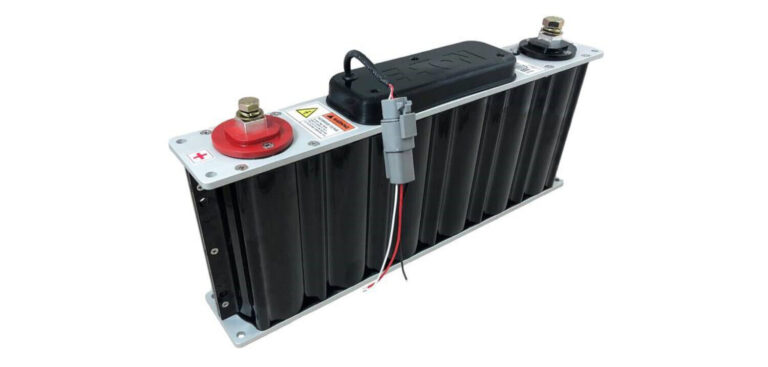Powertrain company Eaton says its Vehicle Group has developed a series of 48V technologies to assist its global on- and off-highway commercial vehicle customers transition from traditional 12V and 24V vehicle systems to ones that include 48V architecture.
“This development comes as global vehicle manufacturers are making decisions to adopt new technologies to meet emissions regulations,” said Ben Karrer, manager, Technology Development, Eaton’s Vehicle Group. “Of the options available, 48V architectures are becoming more popular because they can decrease both CO2 and NOx simultaneously, which helps both our customers and the environment.”
Eaton says its Vehicle Group is also developing power electronics for 48V electric catalyst heating applications, which provide heat directly to a vehicle’s aftertreatment system. This active heating helps catalyst components reach efficient operating temperatures faster upon engine start and maintain those temperatures during low-load operation. This will be an essential strategy for reducing emissions to the levels required by future regulations.
“48V power will also be used to power systems such as HVAC and the engine cooling fan, which are traditionally run by the engine,” added Karrer. “Today’s systems are not intelligent—you can’t control when they’re on or off or adjust the levels. Converting those components to electric alternatives allows you to intelligently control them and eliminate mechanical loads.”
An electrical engine cooling fan and electric air conditioning compressor are also under development. Electrifying the cooling fan provides additional benefits over mechanically driven fans, as they can be reduced in size and strategically placed within the engine bay, allowing for aerodynamic design flexibility to increase fuel economy and reduce emissions.
In addition to electrical components the company is also working on 48V energy storage solutions, ranging from lead-acid batteries to super capacitors. “We’re integrating various energy storage technologies into a larger storage pack including controls, fusing and contactors,” explained Karrer. “Eaton’s Electrical Components Group is our partner for supercapacitors, and we will be working with most commercial vehicle battery manufacturers for lead-acid batteries.”
Eaton notes that the latest lead-acid batteries are inexpensive compared with lithium-ion packs and offer a safe and efficient energy storage solution, with a longer lifespan when compared with existing lead-acid battery applications.
Supercapacitors meanwhile can quickly charge and discharge at higher rates than lithium-ion batteries. While their size and weight are comparable to lithium-ion packs, supercapacitors don’t retain high levels of energy in comparison or require a liquid cooling system, and they have a longer cycle life.


